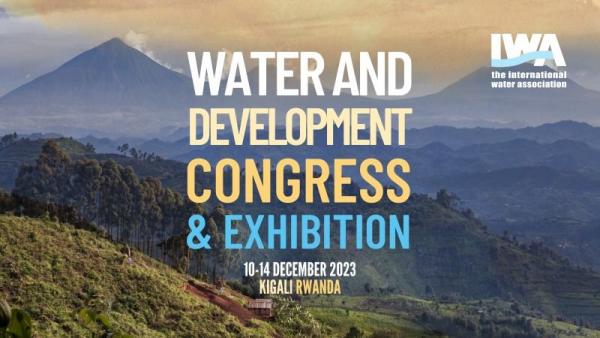Key catalytic interventions needed from development partners in the sanitation sector
Reviewing the evidence from IWA’s Water and Development Congress
5 Feb 2024 by The Water Diplomat

At the 7th edition of the International Water Association’s (IWA’s) Water and Development Congress and Exhibition (WDCE), governments and other stakeholders shared views on new approaches with the potential to accelerate progress in the field of Water, Sanitation and Hygiene (WASH). The conference, held in Kigali, Rwanda in mid-December 2023, took place against the background of a general recognition that the world is not on track to achieve Sustainable Development Goal 6 on water and sanitation. This is particularly true of sanitation, as the achievements in the area of safely managed sanitation tend to lag behind those of safely managed water supplies. In 2021, the IWA noted that while 29% of the world’s population lack access to potable water, 55% of the world population lack access to safely managed sanitation services. The only target, which is on track for sanitation, is ending open defecation.
The sanitation sector, therefore, is in need of clarity on the ways in which progress can be accelerated. In this regard the WDCE was an insightful exchange of views, and Ms. Marisa Boller, Eng. Ronald Sakaya and Dr. George Wainaina, from the Swiss Federal Institute of Aquatic Science and Technology (Eawag) were on site. They drew the following lessons from the event for the wider WASH community.
Firstly, while a lot of emphasis has historically been placed on centralised sanitation systems, in fact, there is a lot of promise held by the examples of decentralised systems. In this respect it would be advisable to pilot and scale up decentralised sanitation systems and optimize onsite models (e.g. scheduled emptying of fecal sludge stored in on-site systems) in urban low-income areas currently lacking adequate access.
Secondly, leveraging investment, knowledge and buy-in from the private sector is important. This could be applied to partnerships that have an inclusive and citywide approach. Therefore, it is important to facilitate the establishment of public-private partnerships between municipalities, donors, communities, and enterprises to develop inclusive sanitation infrastructure and service delivery models.
Thirdly, climate resilient sanitation infrastructure requires financing, and in order to achieve this, the business model for infrastructure development needs to be clear. Partnerships as explained above could support this. It is therefore necessary to develop the capacity to design bankable proposals for climate financing by assessing and integrating resilience needs into designs of sanitation infrastructure projects and business models. Closely related, sanitation service providers need to be trained on business models integrating resource recovery/reuse using treatment by-products to enhance financial viability.
Fourthly, ensuring climate resilience for sanitation is essential. Many countries have national regulators - public authorities responsible for applying and enforcing standards, criteria, rules, and requirements for utilities, which are providing water and sanitation services - and they should be involved in boosting the climate resilience of the sanitation sector. In this context it is important to develop the capacity of regulators and policymakers on emergent climate resilience strategies and technologies in order to support regulators to incorporate these into sanitation planning and regulation.
Fifth, in order to maintain and upgrade sanitation infrastructure, the availability of accurate and timely information on the condition of services is critical. This information needs to be held up against national sanitation standards to assess areas for intervention. Therefore, it is important to institute monitoring and benchmarking frameworks for sanitation assets to systematically assess functionality gaps and prioritize maintenance investments for sustainability. In this context, digitalization of the sanitation sector can improve data collection to facilitate more efficient planning and decision-making.
Lastly, sanitation is about service provision and about setting the bar together as a sector. It is important to build participatory accountability mechanisms for sanitation provision involving communities, regulators, and utilities to track service quality and provide course corrections.
In summary, municipalities will have to consider decentralized and onsite solutions where relevant, leverage on knowledge from the private sector and enhance business and financing models to ensure that sanitation services and infrastructures are resilient to impacts of climate change. In addition, capacity development to enhance regulation and service provision of sanitation, monitoring, and accountability will be essential.
Further readings for some of these topics include:
An Integrative Assessment of Lighthouse Initiatives for Decentralised Wastewater Treatment and Reuse Systems (DUWTRS) - Link
Open access learning on sanitation issues - Link
Compilation of water and sanitation tools for practitioners - Link
